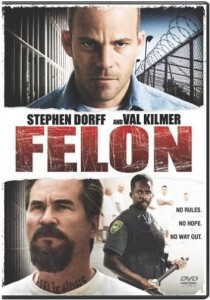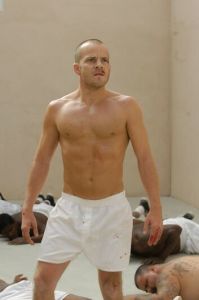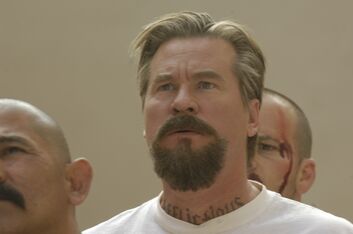By: debbie lynn elias

In 1998, eight California corrections officers and supervisors were indicted on federal criminal rights charges arising from inmate fights that occurred at the Corcoran State Prison. Once known as America’s deadliest prison thanks to 37 inmates deaths and 13 woundings committed by guards in a seven year period while the State of California turned a blind eye, in 1994 it seemed to be established policy for Corcoran officers to intentionally release opposing ethnic factions of inmates into the prison yard known as the SHU, all for the officers’ amusement. Knowing that fights would result, the officers viewed these events as games, threatening to shoot any inmate that jumped in to help a “brother” in these pre-determined 1-on-1 fights. It was reported that at least one supervisor amused himself by calling the fights like a ring announcer. Other guards placed bets on the gladiator-style bouts. Written reports of the fighting were then falsified by the officers to cover-up their own misconduct with the staged fights and “target practice.”
The “games” escalated until April 2, 1994, when four guards staged what would become one of the final fights. Knowing that “problems” would occur between the inmate factions let into the yard, Serg eant John Vaughn assigned Officer Chris Bethea to the yard gun position arming him with a 37mm that shoots wooden blocks and a 9mm rifle. Officer Mary Farquar was told by Sergeant Vaughn that a fight was expected and she was assigned to the booth, operating the sallyport doors that allow the inmates ingress and egress to the yard. One of the officers present chillingly stated, “It’s going to be duck hunting season.” As anticipated a fight broke out prompting Officer Bethea to fire two shots at the inmates – one from the 37mm and the other, from the 9mm. The 9mm shot hit inmate Preston Tate in the head and killed him. And this was just the tip of the iceberg as to the heinous crimes being committed at Corcoran; crimes not being committed inmates but crimes more criminal than those for which the inmates were imprisoned. Crimes like tasering the inmates genitals, rape by guards, intentionally set-up rapes by violent inmates perpetrated against the uninvolved “innocents” just biding their time until their release and looking forward to a new life.

It is the events of Corcoran that led veteran stuntman turned writer/director Ric Roman Waugh to deliver FELON, a fictionalized account of prison insanity and the power of love, loyalty and family.
Wade Porter is a loving family man. With a beautiful son, an impending wedding to his longtime love Marisol, and a thriving successful construction business, he is living t he American Dream. That is until the unthinkable happens when a burglar breaks into his home – through his child’s bedroom window no less. Trying to protect his family, Wade is caught up in the moment and chases the burglar out the front door into the front yard. As he swings a baseball bat at the perpetrator’s shoulder, the man ducks causing the bat to strike his head. Slumping to the ground of the Porter front yard, the thief is dead. With police swarming the house, it’s not long before Wade receives the shock of his life. On questioning the arresting officers he and fiancé are given a harsh reality on a fallacy in the law – by Wade following the thief outside the door of the residence, he lost the right of self-defense and now faces charges of second degree manslaughter. Life for the Porters changes in the blink of an eye.
Confident that he can “take care of everything” and “everything will work out”, he places his trust in a public defender who strikes a plea bargain that gets Wade a 3 year sentence with a potential reduction to 18 months less time served – an eternity to Wade and Marisol. Stealing themselves for what to them appears to be a life together but merely separated for a time, they are unaware of and unprepared for the trials and tribulations that await them, both in the real world and behind bars as each is forced into their own form of survival mode.
John Smith is a hardened trouble-making felon. Transferred among every prison in the state, but for one, he has long been protected and befriended by Warden Gordon Camrose. With philosophical manifestos and writings posted regularly to the Internet, Smith is an outsider even in the prison system. Having been convicted of murdering some 12 people, at first blush, one would never believe this intelligent, articulate, mannered man was a cold-blooded killer, let alone one that on certain days of the year mentally breaks and incites riots wherever he is housed. Having prayed for the death penalty, Smith was instead sentenced to do his penance imprisoned for life; a sentence that torments him every moment of every day. But now, with his latest antics, Smith is at the end of the line and Camrose can help him only once more – by having him transferred to the only prison remaining – the one in which Wade Porter is housed.
In the meantime, Porter has struggled to survive, not knowing who to believe and who to trust and most definitely not understanding the politics of prisons. And he has taken his knocks for it. A resident of the SHU, guarded by “animals” of officers and being subjected to genital tasering, beatings, solitary and being tossed out into the yard as a target in many a fight, Porter is a basket case as with each incident, Lt. Jackson, the African-American head officer of the SHU takes more of a dislike to the white bread non-violent Porter. But thin gs take on a different perspective for Porter with the arrival of the tacitly subdued Smith who becomes his cell mate. With trepidation and reluctance the two slowly become not only true friends, but the conscience for those who have forgotten their own and with Smith’s intimate knowledge of the prison system, boldly decide to blow the lid off Lt. Jackson and his gladiator games with guns.
Let’s say it right now – this is Val Kilmer’s Oscar moment. WOW!! He blew me away with his portrayal of John Smith. As if channeling Jack Nicholson, Kilmer is very cool, controlled and methodic with his actions, reactions and dialogue delivery. Even the voice and controlled breathing pattern had hints of Nicholson. Without a doubt this is one of Kilmer’s best performances. He was so astonishing and so completely convincing in conveying Smith’s personal beliefs and convictions about family and protection, he actually moved me to tears. In a single scene where we learn what happened to Smith and his reasons behind his crimes, Kilmer is so moving, your heart bleeds for the character. You understand completely why he did what he did and not only sympathize but empathize with him. Avowing an acceptance of what his life now is and the small price it is to pay – Kilmer rips every heart string to pieces. Bring that box of tissues with you for this one! Adding to his performance, Kilmer packed on the pounds which fit Smith’s imprisoned persona perfectly.

And Stephen Dorff as Wade Porter is equally impressive and intense. In addition to acting, he also donned the hat of executive producer, telling me his level of commitment to the role and the film. Shooting in a working correctional facility in Santa Fe, New Mexico fueled the inherent fury of this film, particularly as to the fight scenes, leading to some over-zealous performances resulting in concussions and injuries galore for the star. Dorff candidly admits that it was difficult not to befriend even the most hardened of inmates and made friends with many of them, including one, a tattoo artist named Isaac, who gave Dorff a permanent reminder of the film – some tattoos.
As for supporting performances – DYNAMITE! Harold Perrineau as Lt. Jackson warrants a Best Supporting Actor nod. He gives new meaning to psychotic, power-hungry, self-absorbed bastard. I wanted that man picked off by an inmate from the get-go. And let me just say, you will love how Jackson gets his comeuppance. Nick Chinlund is one of the best supporting actors in the business today when it comes to playing a cop/military man, etc. (or a con). No matter how bad the character is on the surface, Chinlund always manages to give him some heart and a conscience (albeit a small one) and here as Sgt. Roberts is no different. Nate Parker simply shines as newcomer to the SHU, Officer Collins. I first noted Parker in THE GREAT DEBATERS. Such spunk. Such=2 0spirit. Here, he is more toned, balanced – again with tacit conscience. And again, nice interplay and relationship development between the characters of Collins and Porter. And Sam Shepard is ideal as Gordon Comrose and brings a warmth and gentility to a very brutal world. Also look for a strong performance from Anne Archer as Marisol’s mother.
As writer and director, Waugh nails this one to a tee. While incorporating the Corcoran events into the story, the strength of this film comes from good storytelling and character development and never moreso than the relationship between Porter and Smith. Their bond develops not from crime, but from heart and understanding. It’s a tacit, slow, simmering process which you can see change thanks to little nuances like Smith turning around to look at Porter when he talks to him; instead of looking at the wall on initial meetings, peripheral glances start occurring when each goes in or out of the cell. There is a caring and mentoring that is beautiful to see take shape which Waugh beautifully captures on camera. Particularly noteworthy is Waugh’s story structure as he dangles carrots, leading you along as bits and pieces of the character’s lives and backstories are divulged, leaving the greatest revelations for last. There are few holes in the script in terms of the exchanges between Wade and Marisol but Waugh more than makes up for slight deficiencies with his attention to detail both on paper and on camera,20even including prison formalities such as women can’t wear underwire bras to visit inmates.
Kudos to the extensive handheld camera work which was difficult at best during the fight scenes. A film like this could never have been shot with all stationary rigs. Waugh also employs extreme close-ups which really emphasizes the in-your-face drama of the severity and intensity of the jailhouse situation.
An emotionally intense and powerfully strong film that assails one’s sensibilities and mores, giving rise to an awakening of the inhumanity and injustice that not only has occurred but in certain respects does occur, in the prison system and law enforcement today, FELON touches our hearts and our minds, humanizing what and who many perceive as inhuman.
Wade Porter – Stephen Dorff
John Smith – Val Kilmer
Lt. Jackson – Harold Perrineau
Gordon Comrose – Sam Shepard
Written and directed by Ric Roman Waugh. Rated R.












